by Whitney Cherry | Aug 14, 2013
The out-of-school hours constitute the biggest single block of time in the life of a young adolescent (Council on Adolescent Development, 1992).
- What are they doing with it?
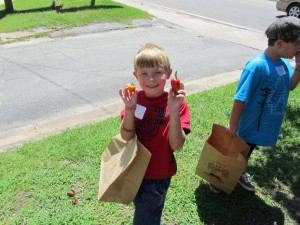
With the help of 4-H volunteers like you… anything they want!
Join us on Monday, August 19, 2013 at 6:00 PM Central for the first session of Make a Difference Mondays, where you can learn how to make positive differences in the lives of youth just like this!
Contact your local extension office for more information or go to: https://nwdistrict.ifas.ufl.edu/4hn/make-a-difference-mondays/
by Whitney Cherry | Aug 13, 2013
In 2001, Kirk Astroth and George Haynes of Montana State University published research which found the following:
Compared to other youth, 4-H youth are more likely to:
- Succeed in school, getting more A’s than other kids
- Be involved as leaders in their school and community
- Be looked up to as role models by other kids; and
- Help others in the community.
But this is the real reason we volunteer with 4-H:
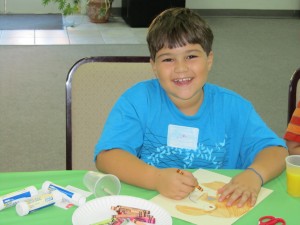
Join us on Monday, August 19, 2013 at 6:00 PM Central for the first session of Make a Difference Mondays, where you can learn how to make positive differences in the lives of youth just like this!
Contact your local extension office for more information or go to: https://nwdistrict.ifas.ufl.edu/4hn/make-a-difference-mondays/
by Whitney Cherry | Aug 12, 2013
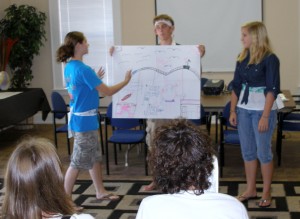
The countodown is on to the first session of our Make a Difference Mondays Volunteer Training Series. We are just one week away from our first session! This session is going to be great for all volunteers interested in leading a 4-H club. New or experienced… you will learn things that will help you get through this 4-H year with ease! Great organizational strategies from presenters Kay Brown and Julie Dillard will help you in your quest for success! For more information on this series go to: https://nwdistrict.ifas.ufl.edu/4hn/make-a-difference-mondays/
by pmdavis | Aug 2, 2013
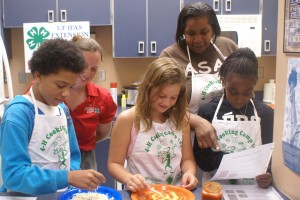 4-H and Foods, sounds pretty yummy to me! In fact cooking projects are a great example of how youth learn about foods by partnering with adults in the kitchen to plan and prepare them. Most 4-H cooking projects explore the science, nutrition and history of cooking while promoting healthy eating and resource management.
4-H and Foods, sounds pretty yummy to me! In fact cooking projects are a great example of how youth learn about foods by partnering with adults in the kitchen to plan and prepare them. Most 4-H cooking projects explore the science, nutrition and history of cooking while promoting healthy eating and resource management.
As an adult partner you will help youth learn how to select, prepare and store food items. You can help them explore the many methods of cooking, which include roasting, stir frying, grilling, barbecuing, smoking, boiling, steaming, braising and microwaving. The USDA’s MyPlate (http://www.choosemyplate.gov/) can help you to plan meals and make balanced food choices.
Remember when cooking with kids safety is first. Have supervision. Never allow youth to cook without asking for permission. Remind youth that clean is good! Keep hands and surfaces clean, if the children you work with have long hair be sure to tie it up. Also be sure that they do not have loose clothing that can catch on fire. Help youth identify and know how to safely use common tools in the kitchen including knives and other sharp objects, hot items such as broiler, toaster, stove or microwave and teach them measuring methods. Remind youth to keep hot foods hot and cold foods cold. We certainly don’t want any of those food borne illnesses coming our way.
Help youth read the directions and follow the recipes. They should check to be sure that they have all of their ingredients before beginning their cooking project. If the project requires cutting skills start simple with something soft like a banana and a plastic knife. Demonstrate the technique then have them try the actions. Teach them the following rules for working with knives.
-
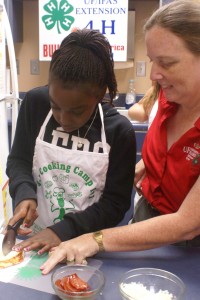
Paula and Nakobie cutting tortilla
Cut with caution.
- Focus on one task at a time.
- Never point a knife at a person.
- Always hold knife by handle.
- Use a cutting board.
- Go Slow. Take your time to learn how to cut. Beginners can start with sturdy plastic knives.
Remember to demonstrate how to wash produce and handle meat safely so you do not have cross contamination of foods. Help youth find what it is about cooking that excites them! There are recipes for snacks, side dishes, main dishes, quick breads and desserts that are great starters for youth cooking. Great projects to start with are the national 4-H Foods Curricula, or Florida Department of Agriculture Xtreme Cuisine, Nebraska 4-H has some easy kid friendly recipes or see the handout made by Bay County Extension about kid friendly foods.





